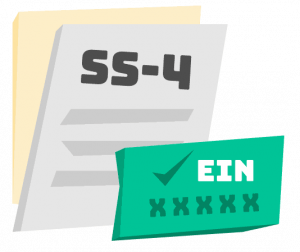How to Start a Corporation in Colorado
A Colorado corporation is a legal entity that is separate from its owners (shareholders). Corporations protect owner assets (house, cars, bank accounts) from being used to settle business debts or lawsuits. To start a corporation in Colorado, you must file Articles of Incorporation with the Colorado Secretary of State. You can file the document online. The Articles of Incorporation cost $50 to file. Once processed by the state, this document formally creates your Colorado corporation.
Below, you’ll find a step-by-step guide for starting your Colorado corporation, along with instructions on everything you need to do to get it ready to do business.

1. Name Your Corporation
If you’re starting a new business, you probably already know what you want to name your corporation. But you’ll need to know if your preferred name is available. To find out, visit the Colorado SOS’ Business Database Search and browse until you find the perfect name for your corporation. Colorado’s rules for naming corporations are detailed in CO Rev Stat §7-90-601.
Your corporation’s legal name is the one listed on your Articles of Incorporation.
A trade name is any name other than your corporation’s legal name (or your own legal name, if you’re operating a sole proprietorship) under which you do business.
If you’re going to use a trade name, you’ll need to file the Statement of Trade Name with the Colorado Secretary of State and pay the $20 fee.
Thinking about using a DBA? Learn more about How to Get a Colorado DBA.
Colorado DBAs must be renewed annually by filing a statement of trade name renewal any time during the three months before the expiration date. When registering your trade name, you can sign up to receive email notifications from the secretary of state’s office regarding your renewal. The first email will be sent at the beginning of the first month you can submit your renewal paperwork, and a second email will be sent one week before your trade name expires.
To renew, you’ll need to use the secretary of state’s Record Identification or ID Search to find the record of your trade name registration, which will enable you to renew online.

2. Designate a Registered Agent
Per CO Rev Stat § 7-90-701, every Colorado corporation must appoint and maintain a registered agent. You don’t need to hire a registered agent, but if you do, make sure your registered agent will list their address on your articles wherever possible to ensure maximum privacy.
Colorado’s rules for registered agents are covered in CO Rev Stat § 7-90-701. A Colorado registered agent can provide a range of services, but at minimum, your registered agent must:
- Maintain a physical address in Colorado.
- Be available at that address during regular business hours.
- Accept legal and state mail for your business and forward it to you right away.
Yes, you can be your own registered agent in Colorado. With that said, however, after considering the registered agent requirements most business owners elect to hire a registered agent service instead. Why? Well although being your own registered agent will cost you $0, a Colorado registered agent’s name and address becomes part of the public record. Additionally, the registered agent is required to be available to accept service of process during normal business hours 5 days a week.
Yes. File a Statement of Change Changing the Registered Agent Information form with the Colorado Secretary of State. (The “Change Changing” bit isn’t a typo—it’s just a weirdly-named filing.) After you place an order with us, you’ll need to file the form online. All Colorado filings are done online. It’s a simple process, but for more info, see our guide on how to change your registered agent in Colorado.

3. Submit Articles of Incorporation
Learn more about each Articles of Incorporation requirement below.
Note that the information you provide becomes part of the public record—permanently.
You’ll need to include the following information on your Articles of Incorporation:
- Business Name. Your name must include “Corporation,” “Incorporated,” “Company,” “Limited,” or an abbreviation of one of these words. The name cannot currently be in use by a different Colorado entity.
- Principal Office Address. This street address will become part of the permanent public record of your Colorado corporation. Hire Northwest as your registered agent and you can use our Colorado address as your principal address.
- Registered Agent and Registered Address. Your Colorado registered agent can be an individual Colorado resident (such as yourself) or a business that provides registered agent service (such as Northwest). Either way, a street address is required. This is the address where the agent will be available during regular business hours to accept legal notices on behalf of your corporation. Hire Northwest, and our address will go here. (Following the address is a box to tick indicating that the registered agent has consented to their appointment.)
- Name and Mailing Address of Incorporator. The state just needs to know who’s filling out the form. This person doesn’t have to be a director, officer, or anyone in your corporation. Hire Northwest, and we’ll be your incorporator.
- Authorized Shares. List the number of shares you’re creating—you must create at least one. If you have more than one class of shares, you’ll have to include an attachment stating how many shares of each class there are.
- Additional Information. If you’d like to include additional information with your articles, you can tick a box here that says additional attachments are included. For example, you could choose to add information about your corporation’s directors or officers. There are plenty of other provisions you could add, but whatever information you include must be legally allowed—so no changing the corporation name or registered agent requirements.
- Effective Date. Leave this blank unless you’d like your corporation to be formed at a later date, up to 90 days in the future. Most people want their business to be formed immediately, but one reason to consider delaying the start date is if you’re on the verge of a new tax year.
- Email Address. You can (but don’t have to) include your email if you’d like to receive email notifications regarding due dates and other information.
- Individual Causing Delivery. Your “individual causing delivery” is the person clicking “submit” on the form. This is almost certainly going to be the same person that is forming the corporation (it’s an online form—there’s not exactly a lot of time between filling out the form and hitting “submit”). Our information will go here when you hire Northwest.
It’s a fact that all the information provided in the Articles of Incorporation will become part of the public record. When your personal information is accessible by anyone, it opens your business up to hassles like junk mail.
To keep your information off the public record, you can hire a registered agent company—like us. We’ll list our address on this form so you don’t have to. Your personal addresses will stay off the public record and away from prying eyes.
You can only file Colorado articles online.
Start Your Colorado Corporation Today!


4. Get an EIN
Your federal employer identification number (commonly known as an EIN or FEIN) is similar to a social security number for your business. The IRS assigns these numbers and uses them to easily identify individual corporations on tax filings, including federal corporate income tax returns.
The IRS requires corporations to get an EIN for their federal tax filings. You may also be asked for your EIN when opening a bank account, securing a loan, or applying for local business permits and licenses.
You can get an EIN directly from the IRS. The application is free, and most businesses can apply online. However, if you don’t have a social security number, you’ll need to submit a paper application form. Can’t bear to fill out yet another application? Hire Northwest to get your EIN for you. Just add on EIN service during checkout when you sign up for our incorporation service.

5. File the Beneficial Ownership Information Report
As of January 1, 2024, most US corporations are required to file a Beneficial Ownership Information (BOI) Report with the Financial Crimes Enforcement Network (FinCEN). Entities required to file the BOI Report (called reporting companies) need to provide identifying information about the company and its beneficial owners. Newly formed companies must also provide information about their company applicant(s).
- Beneficial Owner: Includes everyone with at least 25% ownership stake in the corporation or with substantial control over company operations, like senior officers and General Counsel.
- Company Applicant: The person who filed your corporation’s Articles of Incorporation with the Colorado Secretary of State, AKA your incorporator. Only companies formed in 2024 or later need to include company applicant information.
You can file the BOI Report online via FinCEN’s E-filing system or hire us to handle it for you.
The deadline for filing your BOI Report depends on when your business was formed. The BOI Report requirement is currently under review by both FinCEN and Congress, but the deadline for existing businesses to file the BOI Report is March 21, 2025. New business have 30 days from their formation date to file.
We’ll keep our pages up to date as court rulings play out, so you’re not left out of the know about this important business filing.
New corporations must provide information about each beneficial owner and their company applicant. (Corporations formed before 2024 don’t need to list company applicant information.) You’ll also need to provide some basic company information.
Beneficial owner and company applicant information:
- Full name
- Date of birth
- Residential or business street address
- Personal identification document (such as a driver’s license or passport), including the ID number
Company information:
- Legal business name
- Any DBAs/trade names
- Business street address
- State of incorporation
- Employer Identification Number (EIN)
Yes. Any time information that’s required on the BOI Report changes, (such as the chief officers, company name, or address) you’ll need to file an updated report within 30 days. You can file your updated report for free through FinCEN’s E-filing system.
No. Unlike the information on your Colorado Articles of Incorporation, your BOI Report won’t be publicly available. The only groups that will be able to access BOI Report information are US government agencies, law enforcement, and financial institutions (for customer verification purposes).
Yes, there are 23 classes of exemption from the BOI Report. The most common exemptions include:
- Large operating companies
- Most financial companies, such as banks and credit unions
- Investment companies registered with the Securities and Exchange Commission (SEC)
- Insurance companies registered with a state or federal agency
- Public utilities companies registered with a state or federal agency
- Tax-exempt entities

6. Write Corporate Bylaws
Bylaws are the internal rules you set for your business. They put into writing how decisions will be made and who gets to make those decisions. All the major organizational processes and procedures for your corporation will go in your bylaws.
For more on Colorado Corporate Bylaws (including free Colorado Corporate Bylaws templates), see our Colorado Corporate Bylaws resource.
Bylaws are not a legal requirement of Colorado corporations. CO Rev Stat § 7-102-106 states that directors, incorporators, or shareholders may adopt initial bylaws—but the law does not declare that bylaws must be adopted.
However, corporate bylaws are arguably the most important internal document your business can create. Just because the law allows you to disregard them doesn’t mean you should.
Corporate bylaws cover basic policies and procedures for issues such as company finances and management. Bylaws should cover a range of topics, answering key questions like those below:
-
Meetings: When and where will meetings for shareholders and directors be held? How many attendees are required to transact business? What are the procedures for voting or proxy voting? How do you call a special meeting? What actions can be taken without a meeting?
-
Stock: How are stock certificates issued and transferred? How is voting affected by issues such as corporate stock owners or fractional shares?
-
Directors and officers: How many directors must there be? Which officer positions are required? What powers do they have? How do you fill a vacancy or remove a director or officer?
-
Finances: What are the procedures for retaining profits, issuing dividends, and paying bills? Who can withdraw money from the corporate bank account or sign checks?
-
Records: Where is the corporate book to be kept? What information will be maintained? How are requests for review or access honored? Can records or copies be kept or distributed digitally?
-
Amendments and emergencies: Who can amend bylaws and how? Can emergency bylaws be adopted in the case of disaster?
Colorado bylaws can also go into more detail regarding the above topics and/or include other provisions—the main requirement is that they must be in accordance with state law. For example, CO Rev Stat § 7-106-202 states that shares can be sold for less than par value unless the bylaws (or articles of incorporation) say otherwise.
Creating bylaws can be overwhelming—where do you start? Northwest can help. We give you free corporate bylaws when you hire us to form your Colorado corporation. We know what kinds of topics and questions corporations need to address, and we’ve spent years refining and improving our forms. We offer many other free corporate forms as well, including templates for resolutions and meeting minutes.

7. Hold an Organizational Meeting
An organizational meeting is the first official meeting of the corporation after the business is legally formed with the state. At this meeting, bylaws are adopted, officers are appointed, and any other initial business is conducted. The first meeting minutes should also be recorded and added to your corporate record book.
Meeting notice must be given at least 10 but not more than 60 days before to the meeting. If the number of authorized shares will be increased, at least 30 days’ meeting notice needs to be given. Meetings don’t have to be held in Colorado.

8. Open a Corporate Bank Account
Businesses that mix personal and business finances together risk losing their liability protections, so your corporation will need its own bank account. In addition, a corporate bank account is essential for easily accepting payments, paying bills and holding funds.
To open a corporate bank account in Colorado, you’ll need to bring the following with you to the bank:
-
A copy of the Colorado corporation’s Articles of Incorporation
-
The corporation’s bylaws
-
The corporation’s EIN
If your bylaws don’t specifically assign the power to open a bank account, you may also want to bring a corporate resolution to open a bank account. The resolution would state that the person going to the bank is authorized by the business to open the account in the name of the corporation. At Northwest, we provide free corporate bank resolutions, along with many other free corporate forms, to help you get started fast.

9. File Colorado Reports & Taxes
In Colorado, corporations file a periodic report each year (also called an annual report). In addition, the state has a corporate net income tax.
The Colorado Periodic Report is an annual information update that you submit to the Secretary of State. You update information on directors, officers, and shares. You must also confirm your registered agent and office.
The Colorado Periodic Report is just $25. Fail to file on time, however, and you’re immediately hit with a $50 late fee and “non-compliant” status. After 90 days of non-compliant status, you enter “delinquent” status, your late fee goes up to $100, and you have to file a Statement Curing Delinquency.
Your annual filing window starts two months before the month in which you originally incorporated and ends on the last day of the month two months later.
These filings can be easy to forget—which is why we send our clients automatic reminders. Or better yet, let us file for you. With our business renewal service, we can complete and submit your annual report for you for $100 plus the state fee.
Colorado has one of the lowest corporate income tax rates in the country—a flat rate of 4.63%.
The Colorado general sales tax is also pretty low at 2.9%. City, county, and specialty sales taxes can be tacked on as well, making the average total sales tax 6.019%. But, don’t be shocked if you’re hit with a higher combined sales tax rate in certain cities, especially tourist hubs. By the time it’s all said and done in Aspen, for example, the sales tax is 9.3%.
Yes. You’ll need to register so that the state can keep track of your corporate income tax and any other taxes your corporation is responsible for paying or collecting. Create an account and login with Revenue Online. You’ll need your EIN before you can register.
Ready to Start a Corporation in Colorado?







